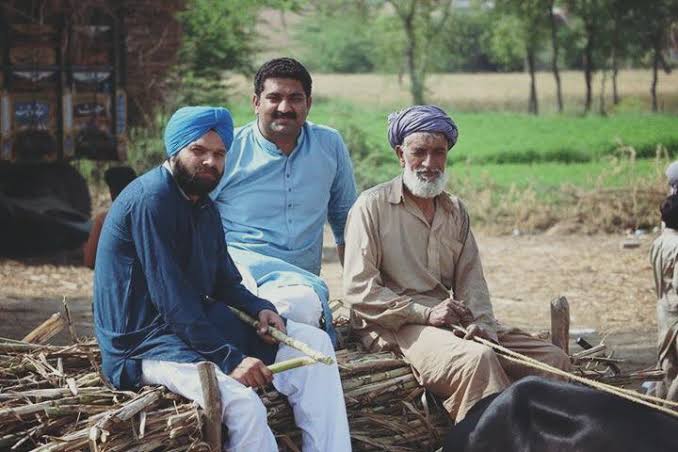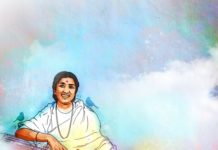Thousands of peasant protesters have been gathering at the Singhu border in the Indian capital, Delhi, for the past three weeks. On the one hand, they seem determined, even in the harsh winter, and on the other hand, they see support from all sections of society.
This is reflected in the seven-kilometer-long sit-in at the Singhu border, where thousands of farmers across the country have rallied against the government’s three new agricultural laws, but the majority are from Punjab.
A 25-member team from Malir-Kotla in Punjab is there to serve these farmers. Last week, images circulated on social media of hot sweet rice being distributed there at 2 am. The Muslims of Malir-Kotla are mostly businessmen but they say it is a movement of all and they want to offer their support in this way.
Muslims of Malir-Kotla are offering not only sweet rice but other cuisines too. They have arranged veg in respect of all religions. Chicken rice too is a cultural dish for Muslims of Punjab, which is served on special occasions and the farmers’ movement is no less than a special occasion.
Malir-Kotla is the only Muslim-majority area in the Indian Punjab and has its own history of how large numbers of people migrated from all over East Punjab to Pakistan during the Partition of India but people did not migrate from Malir-Kotla.
The region remained safe from bloodshed at the time of partition and the Muslims here never thought of relocation because of the harmony and empathy between two religions of this land. Sikh community also respects Nawab Muhammad Khan of Malir-Kotla.
The story dates back to the year 1705 when the country was ruled by the Mughals and the two innocent sons of Guru Gobind Singh, the tenth Guru of the Sikhs in Sirhind, were being elected alive in the wall. It is said that at that time Nawab Muhammad Sher Khan opposed it. And since then, the Sikh nation has been grateful to him.
Malir-kotla has been an example of religious harmony ever since. The Sikhs have also built a gurdwara in memory of Nawab Sher Muhammad Khan, known as the ‘Slogan of Truth’ or the Voice of Fact. He said that Guru Gobind Singh gifted a sword as a gesture of respect to Nawab Sher Muhammad Khan which is still safe with his descendants.
What do Indian farmers want?
In September, the ruling BJP hastily passed three agricultural laws in parliament, which were opposed by the opposition and the Shiromani Akali Dal, an ally of the ruling coalition NDK. The government says the law is for the benefit of farmers, but farmers say it is to their detriment and the country is being sold to corporates.
Meanwhile, a forum of more than 30 farmers’ organizations opposed the new agricultural laws and rejected the Indian government’s offer to amend the law. In fact, they rejected it on December 9, and announced that they will continue to fight until all three laws are repealed.
In recent days, the country’s Supreme Court has not intervened in the matter, but it has given its opinion that the issue of farmers should be resolved, but the situation is still the same.
‘Shok Divas’ means day of grief
Farmers allege that the Indian government is not ready to listen to them. They said that so far more than 20 farmers have died in this movement and that is why they have decided to celebrate ‘Shok Divas’ on Sunday, December 20.
After this announcement, Ram Singh Sanghra, a Sikh preacher, allegedly could not see the plight of the farmers and committed suicide.
According to PTI, a letter written in Punjabi was found from him which is said to have been written by Ram Singh. He wrote in the letter that he “cannot see the misery and sufferings of the farmers.”
Earlier, according to PTI, Jagjit Singh, president of the Indian Farmers Union (Sadhpur), had said that “since November 26, when the movement started, an average of one farmer has been dying every day.” We will pay tribute to all the farmers who were martyred on December 20 in all the villages of the country. When their names and pictures reach the village, more and more people will come forward to join our struggle.








